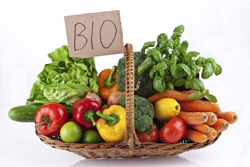Organic food certification explained
Certification is a key part of organic farming as it allows the consumer to shop with confidence by ensuring the integrity of organic produce. It is necessary because organic produce is defined by the way in which it is produced and therefore helps prevent fraudulent products from entering the supply chain. The 'Economic analysis of certification systems for organic food and farming' (Certcost) project carried out a comprehensive economic analysis of existing certification systems. This included an investigation into their impact on the internal market for organic produce. Effective organic certification systems must involve the food supply chain and as a result face a number of challenges. These include gathering information about costs in different EU countries, the role of private and public certification bodies and recertification due to different standards. The key to improving the system, however, is the collation of information in a way that allows comparisons to be made. An organic certification system has two components for risk: non-compliance with the regulations, and possible damage caused by different types of non-compliance. However, greater frequency of inspection can lead to fewer non-compliances and result in benefits for the organic sector. By targeting operators least likely to follow the regulations and/or a greater likelihood of damage due to non-compliance, a risk-based inspection system within an economic context can be achieved. The Certcost project aimed to provide research-based recommendations for improving the efficiency, transparency and cost effectiveness of organic food certification systems in Europe. Results were used to create a baseline for information about the organic certification systems and standard setting procedures within the EU and the associated European countries of Switzerland and Turkey. This included a database, a review of relevant international regulations, and improvement of the current theoretical framework for the economic analysis of organic certification systems. Project partners studied the implementation of different certification systems and the cost of transactions along the food supply chain in different EU regions together with Switzerland and Turkey. Researchers also assessed the benefits of certification systems and the consumer response to different organic trademarks. Economic models were also developed that enabled researchers to assess the factors that determine non-compliance with the regulations governing organic produce and to conduct an overall assessment of organic certification systems. Project recommendations on how to increase the effectiveness and the efficiency of organic certification were developed for the European Commission, national bodies and private actors. These recommendations can serve as a basis for improving the current certification system in the European Union and Switzerland.







